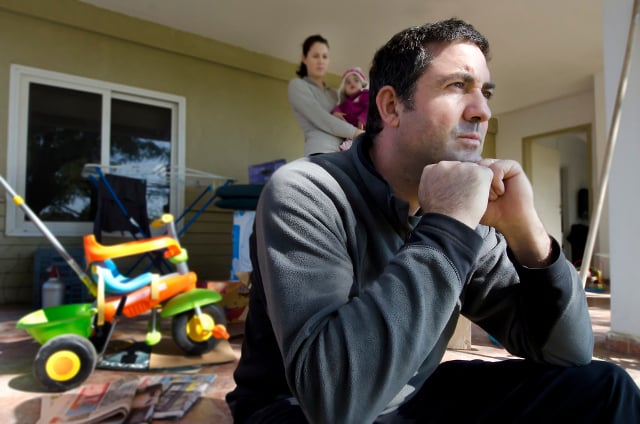MONEY
Report: half a million live below poverty line in Switzerland
Seven percent of the Swiss population live below the poverty income threshold in Switzerland, according to the latest report on living conditions in the alpine country.
Published: 16 May 2017 10:36 CEST

lucidwaters/Depositphotos
Released on Monday by the Swiss statistics office (BFS), the annual Statistics on Income and Living Conditions (SILC) survey for 2015 revealed that 570,000 people were living in poverty. That’s seven percent of the permanent resident population and a slight rise on the previous year.
The BFS defines poverty as being unable to pay for the “goods and services necessary for a socially integrated life” which in 2015 applied to those with a monthly income below 2,239 francs for a single person or 3,984 for two adults and two children.
Groups with higher than average rates of poverty included people living alone, one-parent families, those without further education and people living in a home where no one works, the BFS said in a statement.
The poverty rate for non-European foreign residents was also higher than the national average, at 11.7 percent.
Some 13.9 percent of over 65s were affected, however the BFS noted that the definition of poverty takes into account income but not fortune. Many over-65s rely on their savings to fund their lifestyle and therefore don’t suffer as much as other age groups, it said.
While the rate of poverty was higher among the unemployed (13.6 percent) than the employed (3.9 percent), nevertheless some 145,000 employed people were living below the specified income threshold in 2015.
People working in seasonal jobs, the hospitality industry and small businesses were most affected.
However Switzerland still fares well when compared to other countries.
For the purposes of international comparison the study also analyzed the rate of ‘poverty risk’ in Switzerland, meaning those people who earn considerably less than the national average.
The European Union considers people to be at ‘poverty risk’ if they have a disposable income that is 60 percent of their country’s median salary or less.
In 2015 Switzerland’s poverty risk rate was 15.6 percent, below the EU average of 17.3 percent.
Last year Switzerland became the first country in the world to vote at national level on the potential introduction of a Universal Basic Income (UBI).
Under the proposal every resident would get 2,500 francs per month, whether or not they work.
The figure was defined as the minimum required to enable a person to “lead a dignified existence and participate in public life”.
However the scheme was thoroughly defeated in a referendum, with more than 75 percent of the voting public rejecting the idea.
Url copied to clipboard!


 Please whitelist us to continue reading.
Please whitelist us to continue reading.
Member comments